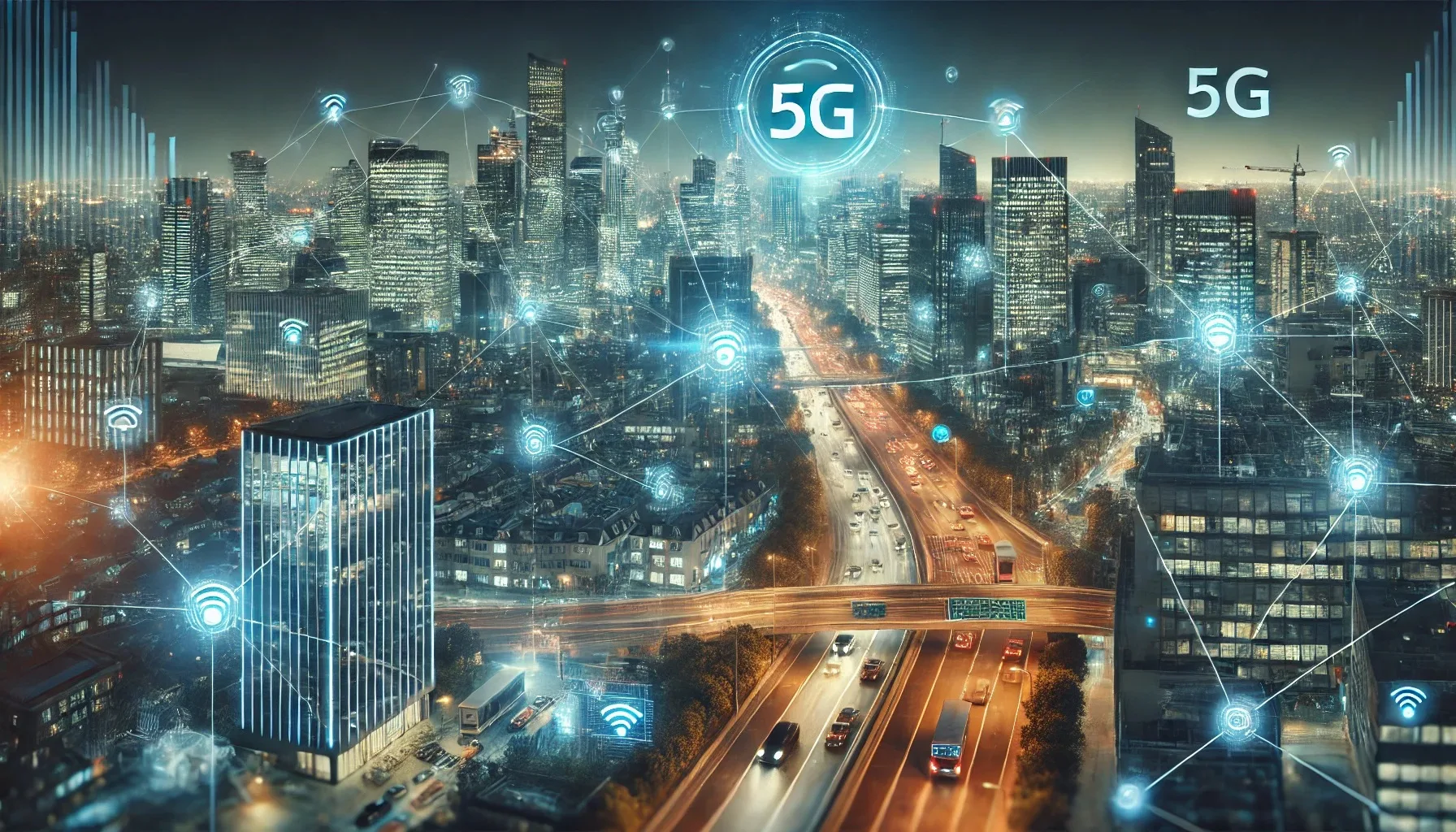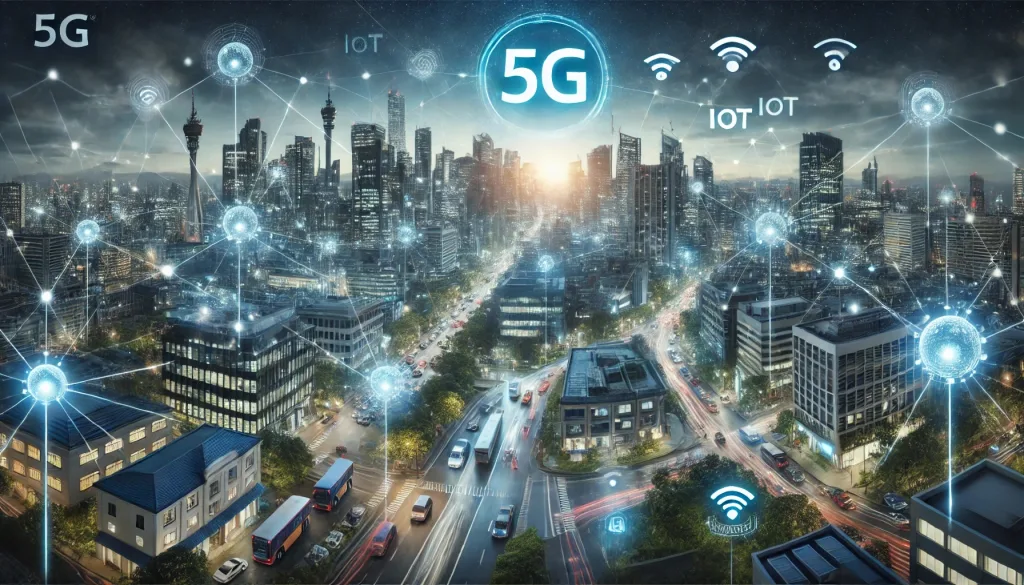
5G Technology: Accelerating the Internet of Things and Smart Cities
5G technology represents a groundbreaking shift in wireless communication, promising enhanced connectivity, speed, and reliability. Its influence is set to drive significant advancements in the Internet of Things (IoT) and smart city infrastructure, reshaping urban environments and daily lives. As IoT devices proliferate, and cities adopt smarter infrastructure to enhance urban living, the role of 5G becomes essential. Its ability to handle vast amounts of data at unparalleled speeds provides the backbone for these innovations.
The Role of 5G in Enabling the Internet of Things (IoT)
The Internet of Things, comprising interconnected devices that communicate and share data, is rapidly expanding. From wearable devices and home automation systems to industrial sensors and autonomous vehicles, IoT applications require networks that can accommodate their high data demands and low-latency needs. Previous networks, including 4G, faced limitations in supporting the exponential growth and complexity of IoT applications, but 5G has emerged as the solution to these challenges, enhancing both the capacity and responsiveness of network connectivity.
With 5G’s low latency, faster data speeds, and massive bandwidth, it has become a pivotal technology to support the growth of IoT, ensuring quicker, more reliable data exchanges and enabling a new era of real-time, interconnected devices. Whether it’s remote healthcare devices, smart energy grids, or environmental sensors, 5G ensures that each component of the IoT ecosystem functions seamlessly, supporting an increasingly complex and integrated digital world.
Seamless Device Connectivity and Enhanced Communication
One of 5G’s most remarkable capabilities is its support for a dense network of devices, allowing seamless connectivity among a diverse range of IoT systems, from household appliances to complex industrial machinery. By facilitating faster data processing and real-time feedback, 5G enables synchronized operations, which are crucial for IoT applications where time-sensitive data transfers are essential. In industries like manufacturing, healthcare, and transportation, this connectivity ensures smoother operations, reduces delays, and allows for remote monitoring and control of systems.
In consumer applications, 5G opens up possibilities for smarter homes and cities, where everything from lighting and security to heating and cooling can be managed remotely and automatically, responding to real-time data. This enhanced communication between devices supports a more efficient, connected, and responsive ecosystem, bridging the gap between the digital and physical worlds.
Transforming Urban Infrastructure with 5G-powered Smart Cities
Smart cities rely on advanced digital infrastructures, including sensors, cameras, and automated systems, to enhance urban management. As cities grow, the complexity of managing resources such as traffic flow, energy distribution, waste collection, and public safety increases. 5G provides the robust, high-speed connectivity needed to manage this constant flow of urban data, facilitating real-time decision-making that can improve efficiency, sustainability, and quality of life for residents.
With 5G, smart cities can collect and analyze data at unprecedented speeds, enabling them to respond dynamically to changing conditions. For example, smart city technologies can optimize energy usage by adjusting street lighting based on pedestrian movement or traffic density, leading to cost savings and a reduction in carbon emissions. Additionally, smart grids can use 5G to balance energy supply and demand more effectively, helping cities move towards cleaner, more sustainable energy sources.
Intelligent Traffic and Energy Management
Traffic and energy management are two critical areas where 5G can drive transformative improvements. In terms of traffic, 5G enables real-time monitoring of city infrastructure, allowing for the detection and alleviation of congestion points and improved safety. Autonomous vehicles, which rely on continuous data exchange with other vehicles and city infrastructure, can perform more reliably and safely with 5G, reducing accidents and enhancing traffic flow.
For energy management, 5G facilitates the integration of renewable energy sources into city grids, supporting sustainable energy initiatives. By enabling real-time tracking and optimization of energy use, cities can respond to energy demands more effectively, reducing waste and fostering a cleaner environment. This kind of intelligent, 5G-enabled management creates a more resilient and adaptable urban infrastructure that benefits both residents and the environment.

Challenges and Future Prospects for 5G in IoT and Smart Cities
While 5G holds transformative potential, challenges remain. Infrastructure costs for implementing widespread 5G networks are substantial, requiring investment in new hardware, network planning, and maintenance. Moreover, the dense networks of IoT devices that 5G enables bring new cybersecurity risks, as more connected devices mean more potential vulnerabilities for hackers to exploit. Addressing these concerns through robust security measures and data encryption will be vital to protect user privacy and maintain trust in 5G-enabled smart cities and IoT ecosystems.
Looking to the future, as 5G technology matures, its potential to support innovations such as augmented reality (AR), virtual reality (VR), and artificial intelligence (AI) within urban environments will continue to grow. Cities equipped with 5G will be able to offer advanced digital services to their citizens, ranging from immersive tourism experiences to virtual consultations in healthcare. To fully realize these benefits, collaboration between governments, industry leaders, and technology experts is essential to establish standards, regulatory frameworks, and best practices for deploying 5G technology effectively and ethically.
Ensuring Security and Privacy in a Connected Environment
As more devices and systems are interconnected, securing data and maintaining user privacy become paramount. The deployment of 5G networks must be accompanied by robust security protocols and privacy standards to protect sensitive information. This is particularly important for applications involving personal data, such as healthcare monitoring or smart home devices, where breaches could have serious implications.
Ensuring trust in a connected environment involves not only safeguarding against external cyber threats but also establishing transparent data management practices. Users need to feel confident that their data is being collected, stored, and used responsibly. As 5G continues to advance, efforts to bolster cybersecurity, establish strong encryption standards, and promote data transparency will be crucial for building a trustworthy and resilient IoT and smart city ecosystem.
